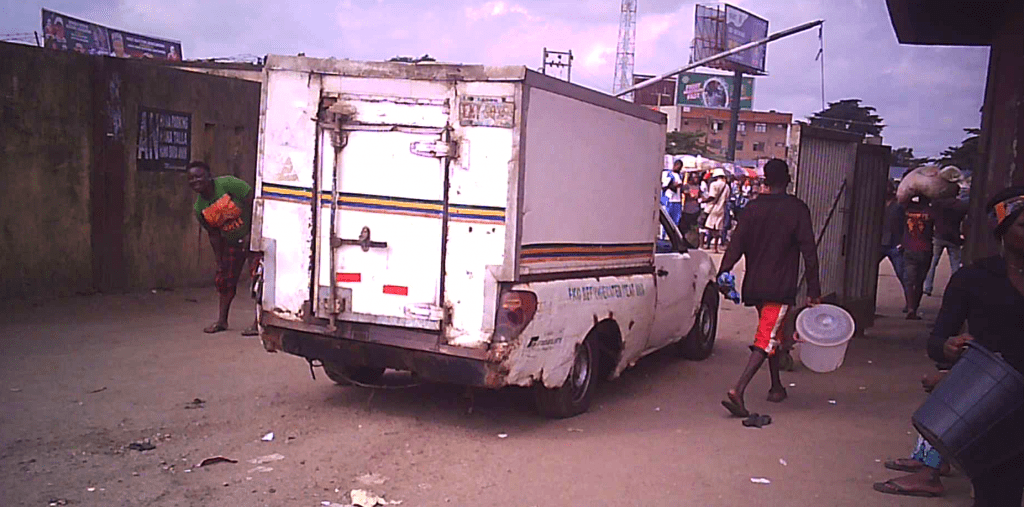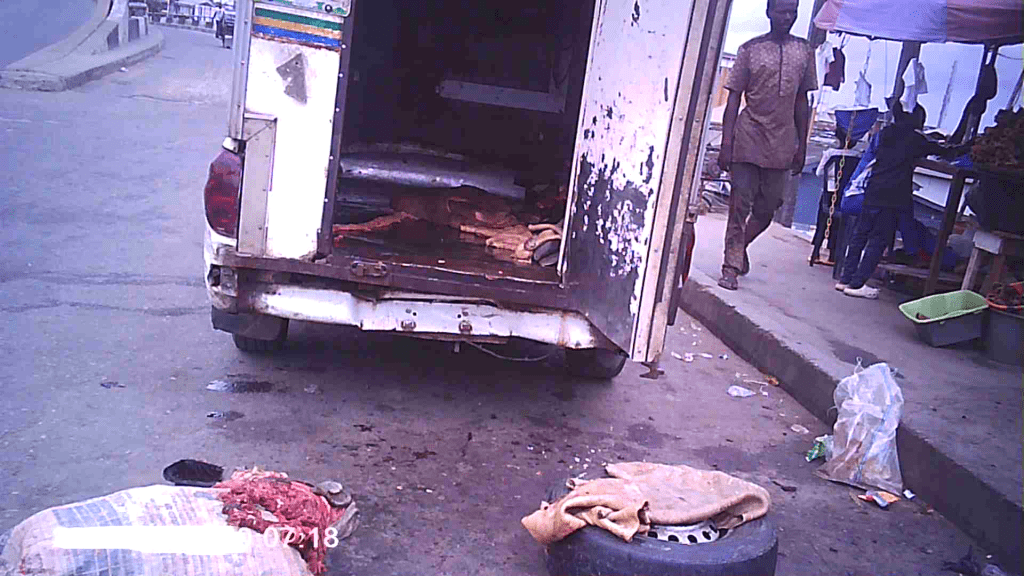Lagos, Nigeria’s bustling metropolis, relies heavily on its iconic Eko meat vans to distribute beef, chicken, and other meats. For decades, these vibrant vans have not only been a staple of the city’s food supply chain but also an integral part of Lagos’s rich culinary history. However, the once-proud Eko meat vans now languish in disrepair, posing a grave public health hazard that can no longer be ignored. Urgent measures are imperative to safeguard the city’s food system.
The Dire State of the Vans

On the congested streets of Lagos, aging Eko vans stand out starkly. Peeling paint, broken doors, and rusty exteriors are commonplace. Vendors, who once depended on these vans to serve the city’s diverse palates, now share alarming stories of struggling to keep meat fresh and cool in these dilapidated vehicles. The economic impact on vendors cannot be overstated, as van breakdowns and refrigeration failures have become disturbingly common over the past year, causing significant disruptions in meat distribution and affecting their livelihoods.
The situation has reached a crisis point, where vendors’ businesses, and consequently, the public’s health, are at risk without swift intervention. In a city where these meat vans were once a symbol of gastronomic delight, they have now become symbols of decay and danger.
A Threat to Food Safety

The deteriorating state of the vans has led to a severe food safety crisis. With failing refrigeration systems and poor maintenance, they create the ideal conditions for pathogens like E. coli and Salmonella to contaminate the meat they transport. Statistics reveal a troubling correlation between the consumption of meat from these vans and rising rates of foodborne illnesses. A recent high-profile outbreak was conclusively traced back to tainted meat from an Eko van. The consequences of consuming such contaminated meat can include severe illness, hospitalization, and even loss of life.
These dire consequences underscore the pressing need to replace these aging vehicles before the next preventable tragedy strikes.
Government Inaction
Despite repeated warnings and growing public concern, the government continues to drag its feet on commitments to provide safer Eko vans. Vendors are frustrated and feel forgotten, while the public remains at risk. Officials often cite limited resources, but this justification is no longer acceptable. Every day of delay magnifies the risk of mass foodborne infections. The government must be held accountable for prioritizing public health over political considerations and budget constraints.
Notably, previous initiatives and promises aimed at improving the situation have fallen short, leaving Lagosian to wonder when their safety and well-being will be taken seriously.
Expert Consensus
Leading food safety and public health experts are united in sounding the alarm on Lagos’s dangerous meat vans. Their data-driven research and on-the-ground experience have led them to a unanimous conclusion: the aging vehicles are a recipe for disaster. They emphasize that transitioning to a modern, hygienic meat distribution system is no longer optional – it’s an urgent necessity. Officials who ignore this consensus are recklessly endangering lives.
Some of these experts have offered specific recommendations, including immediate replacement of the vans, stricter regulations on food transport, and regular safety inspections to ensure compliance. Their expertise is a beacon of hope in an otherwise grim situation.
Mobilizing for Change
The time is now for vendors, advocates, and the public to stand up for their right to safe food. Policy proposals to enhance van maintenance, cleanliness, and refrigeration must be implemented without further obstruction. Peaceful protests, petition drives, and community meetings can help ramp up pressure on recalcitrant officials and demand accountability.
Inspirational stories of past successful initiatives in Lagos and similar contexts show that change is possible. Readers can get involved by contacting relevant organizations, signing petitions, and supporting local advocates who are pushing for reform.
